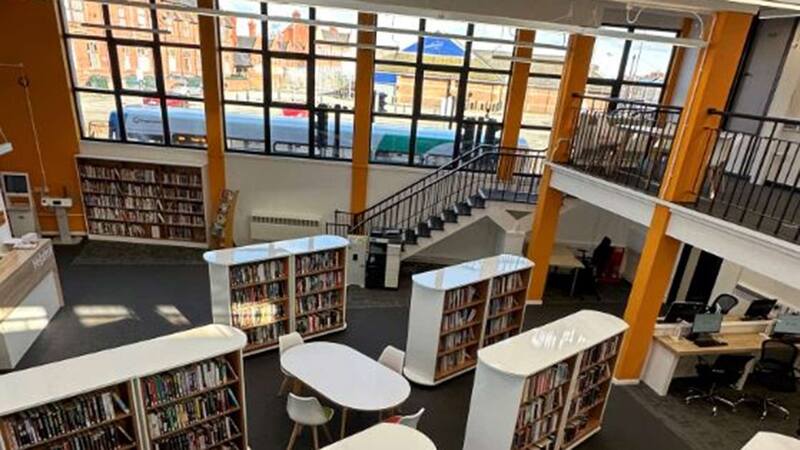You are viewing your 1 free article this month. Login to read more articles.
CILIP launches Future Libraries report and toolkit
The Chartered Institute of Library & Information Professionals (CILIP) is launching Future Libraries, a two-part initiative that will "challenge and engage librarians and library leaders to reimagine libraries in a world of evolving living and working patterns".
Part one of the initiative is the horizon-scanning report, Come Rain or Shine: Preparing Public Libraries for the Future in an Age of Uncertainty, which envisions the challenges and demands that public libraries will face from now until 2040. Come Rain or Shine provides an in-depth analysis of future scenarios that can impact public libraries to help library staff and leaders to become more agile in their strategies and activities.
CILIP said: “Should we be warning about storms ahead or are we hoping for blue skies in public libraries? CILIP commissioned the report with funding from Arts Council England and in consultation with public library professionals from across the country.
“The report takes political changes, the impact of the environment and socio-economic shifts into account as well as changes in technology and user behaviour. The foreword is a personal message from Baroness Sanderson, author of The Independent Review of Libraries published earlier this year.
“When CILIP commissioned the Future Libraries project, it was to address a central question: what kind of public library network will England need to support its social, economic and industrial development over the remainder of this century?”
The report is accompanied by a "do-it-yourself" Future Libraries toolkit to help libraries imagine possible future uses of their spaces with practical insights into generating and testing different scenarios for public libraries.
The report and toolkit will enable public library services to evolve with agility according to the context of each library’s local needs, according to CILIP.
“Libraries will be equipped to assess their specific community contexts and prepare effective strategies for resilient service provision in the future, whatever the weather,” the organisation said.
“While the future is unknown, we can all take steps to ensure we are as well prepared as possible. The public library sector might not be able to predict what will happen next, but it can build resilience and equip services to ensure they are adaptable and able to meet the needs of a changing landscape, while avoiding potential pitfalls.”
CILIP said that reduced finances, a global pandemic and changing priorities shaping services had resulted in the library network seeing significant job losses, service reductions and closures.
Jo Cornish, who recently succeeded Nick Poole as CILIP c.e.o. in an interim capacity, said: “Public libraries are a vital source of trusted information for health, learning, culture, technology and life’s key milestones.
“They are free to enter, a space where everyone is welcome and connections can be made. They provide a sanctuary and trusted information to help people navigate their lives. Librarians have just been announced as the third most trusted profession in the UK to tell the truth and give accurate information.
“This report and toolkit will equip public libraries to navigate the unknown with strategic foresight, safeguarding their pivotal role for future generations.”
Luke Burton, director of libraries for Arts Council England, said: “Libraries have long been adaptive and responsive to community needs and demands, but this has often been reactive, making it difficult to demonstrate impact and value over time.
“It was fascinating to be involved in these workshops and I hope that this research and the associated toolkit will become a critical tool in reshaping the way library services plan for the future. As the sector development agency for libraries, I’m really pleased that the Arts Council has supported this project and I’d like to thank CILIP and Shared Intelligence for creating such a transformative piece of work.”
For more information, visit cilip.org.uk/future-libraries.




















